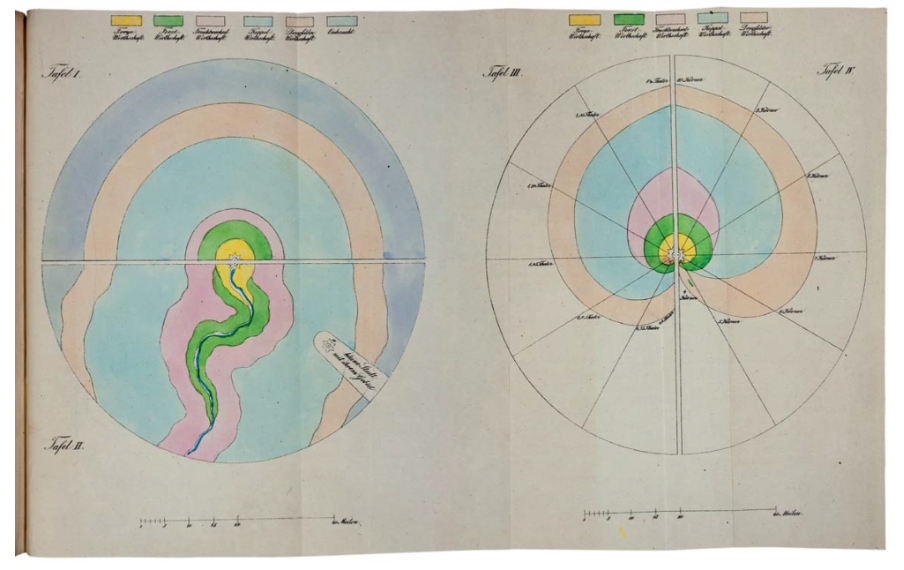Proximity matters and comes at a price

Thünen, Johann Heinrich von, Der isolierte Staat in Beziehung auf Landwirtschaft und Nationalökonomie (Rostock, 1842)
In the early nineteenth century, a German economist, Johann Heinrich von Thünen, studied how agricultural production organises around an isolated city. His model "the Isolated State" gives a mathematical explanation for the typical differentiation in land use he observed around German provincial cities based on the economical trade off between the prices within an urban consumer market, cost of land, the cost of transport and the cost of labour. He describes four rings around the city, with the first ring supplying dairy, fruit and vegetables (because perishable), the second ring timber production (because heavy), the third ring bulk crops such as grain (better storable and transportable), the fourth ring livestock farming (self-transporting), and beyond wilderness. Much has changed since Von Thünen's time. Nevertheless horticultural activities remain dominant in a peri-urban environment until today, not so much because there are no alternatives to getting fresh vegetables into the city, but because horticultural activities generate high yields in a small area, and are thus more able than arable farming and livestock farming to cope with high real estate prices and pressure on peri-urban land. From a 21st century perspective the “Isolated State” reveals the logics of substitution at play in a contemporary urban land market, where it has become possible to trade agricultural land use for urban activities that correspond with a higher land value. One of the main causes for this structural substitution is the relatively low cost of transport of (even fresh) food over long distances and the replacement of local land and labour for the extraction of resources and the exploitation of labour elsewhere. While these logics of substitution seem to make room for housing and amenities, and enable urban development, they are at the heart of a way of urbanisation that seems to accept the steady loss of land and farmers which are essential to the organisation of an equitable and sustainable urban society.Can we imagine the strategies and type of projects to revert these logics of substitution?